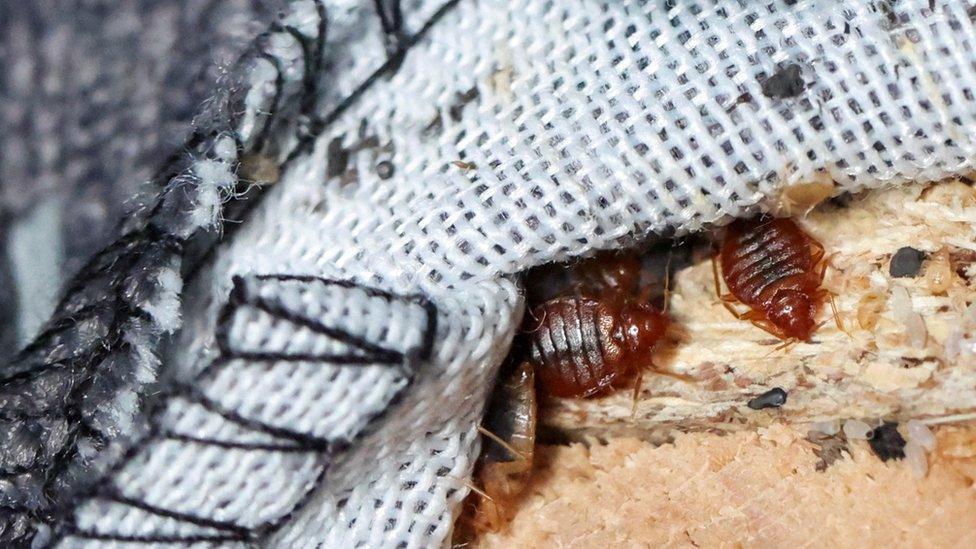Mum finds bed 'infested' with bedbugs at Butlin's Skegness
- Published
A mother cut short her family break to Butlin's after finding a bedbug infestation.
A mother who cut short her family break to Butlin's after finding a bedbug infestation says she "had to leave".
Rebecca Horgan was sharing a "gold" apartment at the Skegness resort with her five-year-old son and parents.
However, Ms Horgan, 36, says they found their accommodation "really dirty", with her bed "infested with bedbugs".
A Butlin's spokesperson said it had "strict cleaning and hygiene policies", including treatment for preventing bedbugs.
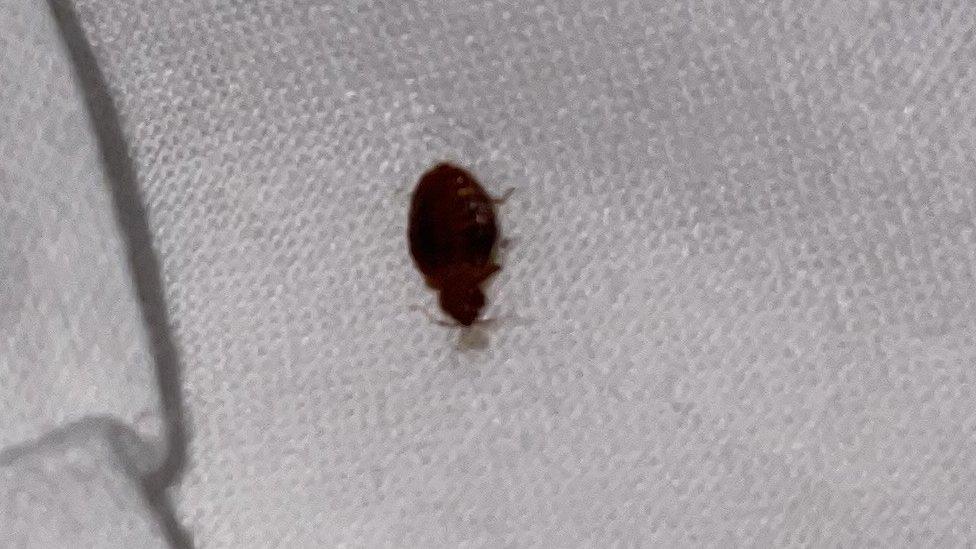
A bedbug Ms Horgan says she found in her Butlins accommodation
Ms Horgan, from Lincoln, said the group had arrived for their three-night coastal break on Friday but had chosen to depart early on Sunday.
The compliance manager said: "I'm not a dramatic person but we had to leave."
Describing her family's experience, Ms Horgan said she had been heading back to bed after attending to her son in the night when she first came across the insects.
"I got back into bed to find a large, adult bedbug on the white pillowcase.
"On pulling back the duvet there were many more in the sheets.
"These had not been visible in the daytime.
"They were also on the bedframe and had invaded my son's suitcase."
Security 'arrived with bin bags'
Ms Horgan said her mother had booked two apartments. Ms Horgan's brother, his wife and children took the other apartment.
No bedbugs were found in that accommodation, Ms Horgan said.
After finding the bedbugs, Ms Horgan said she had rung an emergency number and Butlin's staff had offered to move the four of them to a different apartment.
"No-one came to help us or see if we were OK despite my obvious distress," she said.
"After phoning again and asking for bin bags, so I could seal the cases before putting them in the car, two guards arrived with bags."
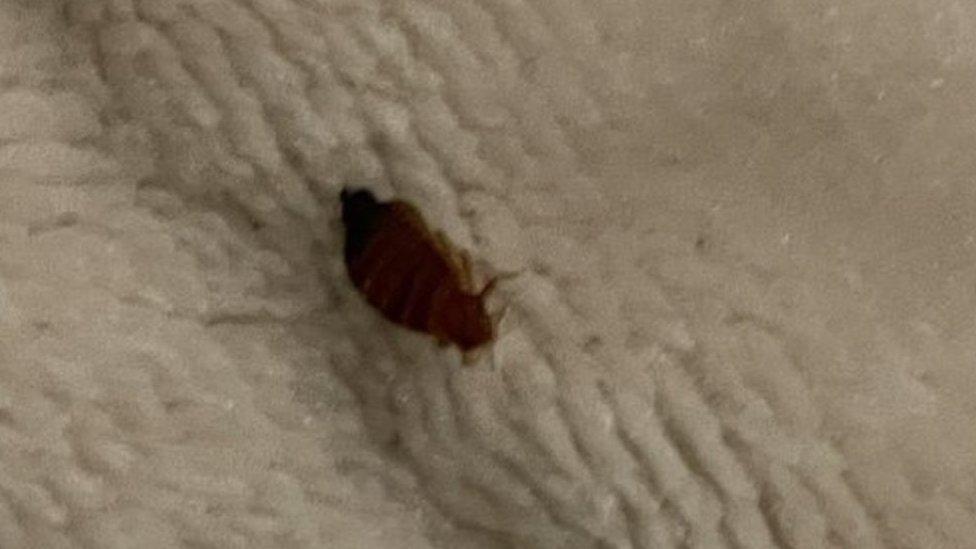
Ms Horgan says she cut short her stay after the discovery
The family decided not to take up the offer of an alternative apartment, Ms Horgan said.
"Due to the contaminated cases, I just wanted to leave," she said.
After arriving home early on Sunday, Ms Horgan's family spent the next two days washing items "to kill anything brought home with us", she said.
She said the family had thrown away their suitcases, including her son's favourite dinosaur case.
Ms Horgan said: "Anything that couldn't be washed and tumble-dried was thrown away or treated with a pesticide.
"I've been waking in the night thinking I have them crawling on my bed at home."
Strict cleaning policies
Butlin's later offered to refund the cost of the apartment and dining, Ms Horgan said, but the company has told her they will not refund the price of the second apartment even though she said the break had been ruined.
Ms Horgan said Butlin's had also refused to compensate the family for items they said had to be thrown away.
"It was a disaster from start to finish," she added.
A Butlin's spokesperson said: "We're very sorry to hear about Rebecca and her family's recent experience on resort.
"We have been in direct contact with the family to offer a gesture of goodwill and since being made aware, we have fully treated the unit of accommodation.
"We want to reassure guests that we have strict cleaning and hygiene policies in place, including the identification and subsequent treatment for preventing bedbugs."
Has there been a rise in bedbug cases in the UK?
There is growing public concern about the insects, with hotels, transport companies and local government facing inquiries about the issue.
Earlier this month, pest control company Rentokil said it had seen a 65% increase in cases of bedbugs in the UK in the second quarter of 2023, compared with a year earlier.
Bedbugs are small, with adults reaching about 5mm in length (less than a grain of rice) and are oval-shaped. They have six legs and can be dark yellow, red or brown.
There are about 90 species worldwide, although the common bedbug cimex lectularius has adapted the best to human environments, according to the British Pest Control Association.
The term "bedbug" can be a touch misleading. As well as mattresses, they can also be found on clothing, furniture and bed frames or behind loose wallpaper.
Bites are usually raised, itchy and often in a line or grouped together. A severe allergic reaction, known as anaphylaxis, is possible but rare.
Bites usually clear up on their own in about a week. Antihistamines can help if bites are very itchy.
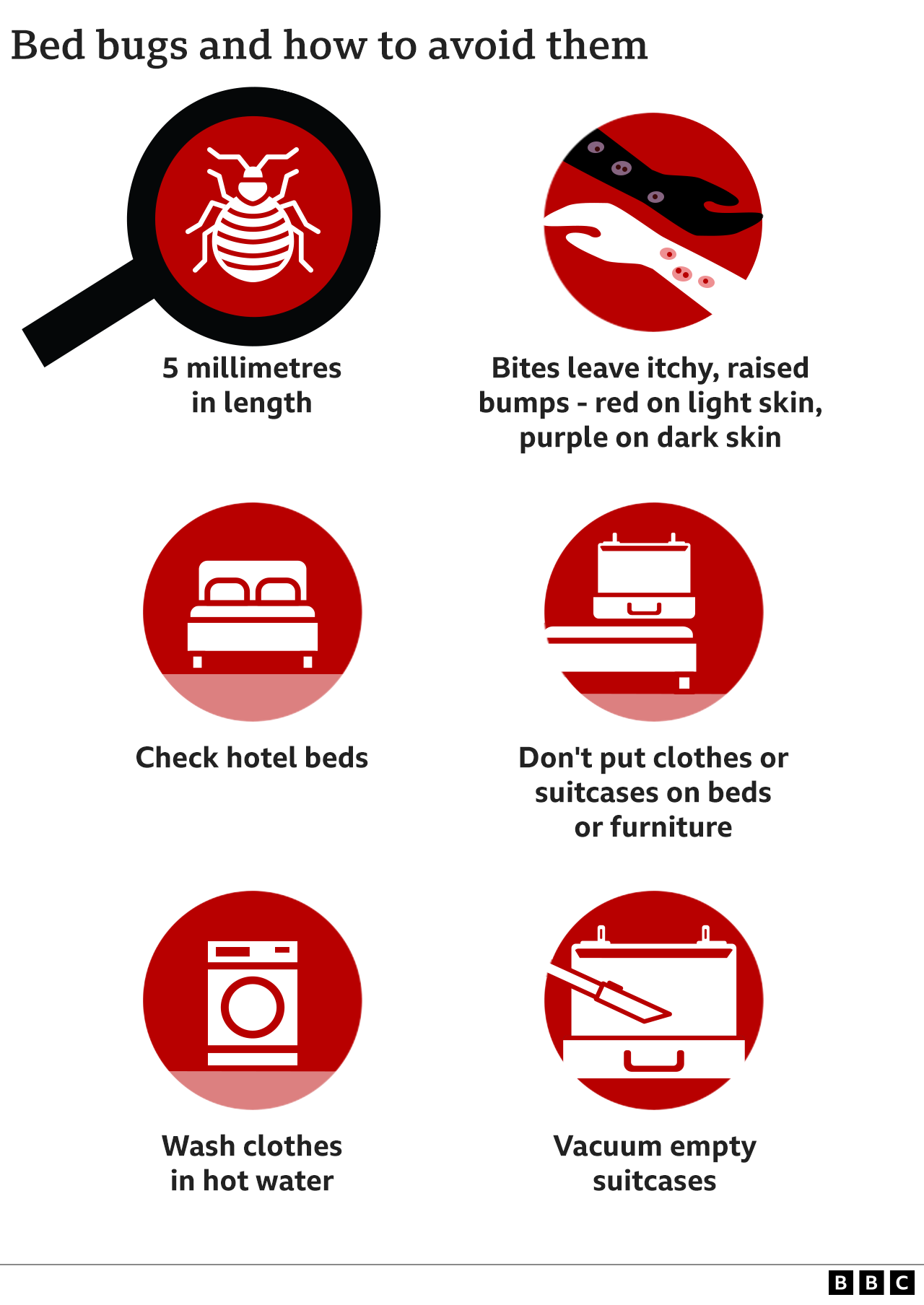

Follow BBC East Yorkshire and Lincolnshire on Facebook, external, X (formerly Twitter), external, and Instagram, external. Send your story ideas to yorkslincs.news@bbc.co.uk, external

Sign up for our morning newsletter and get BBC News in your inbox.

Related topics
- Published15 October 2023
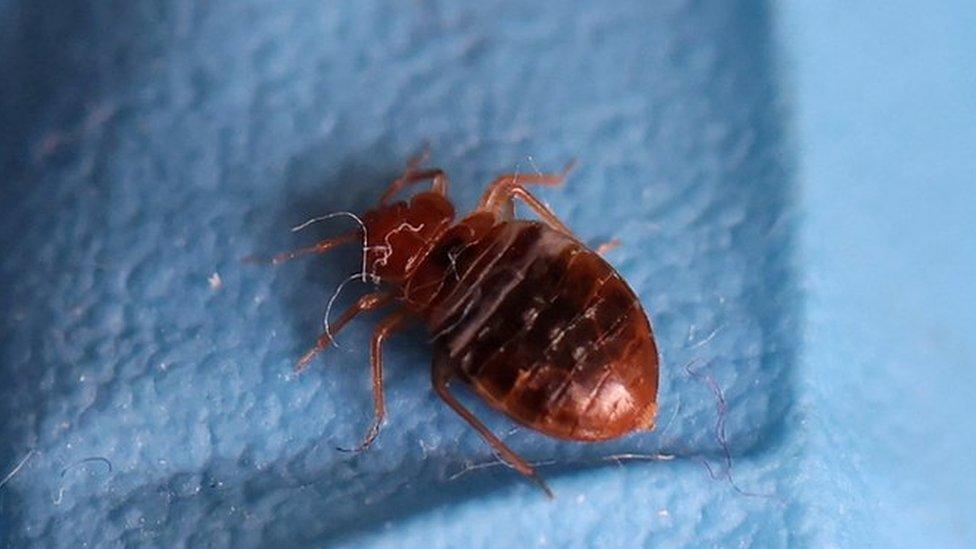
- Published18 October 2023
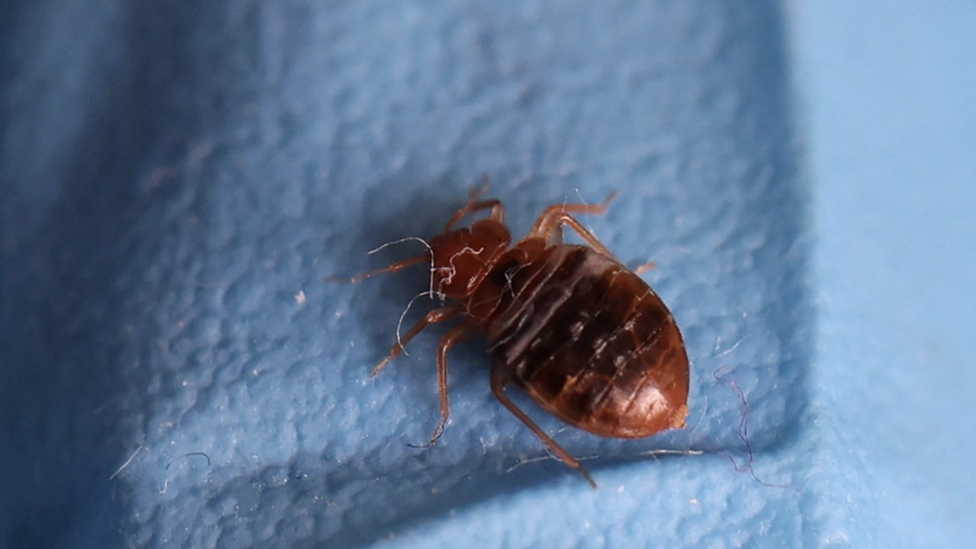
- Published17 October 2023
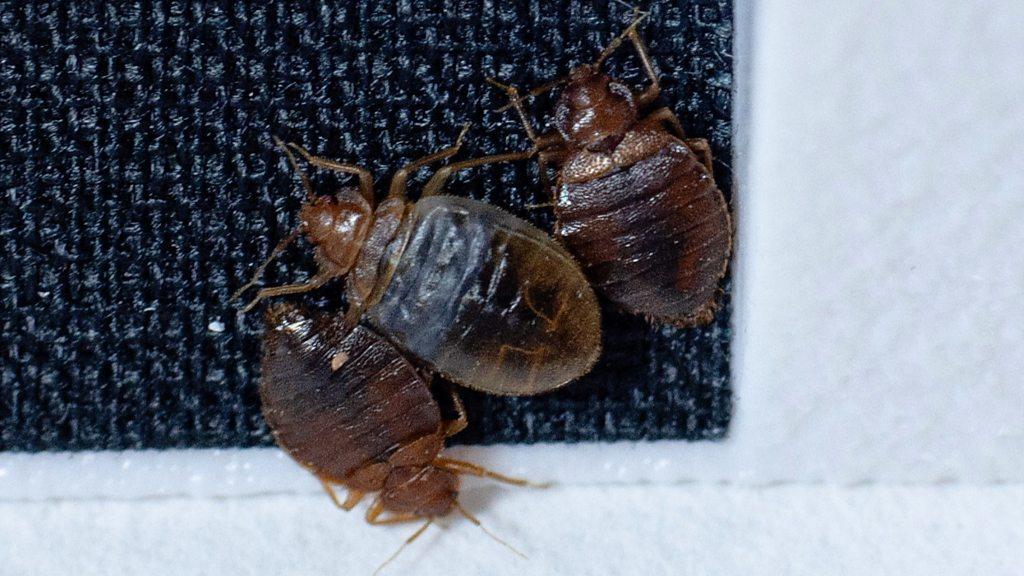
- Published8 October 2023
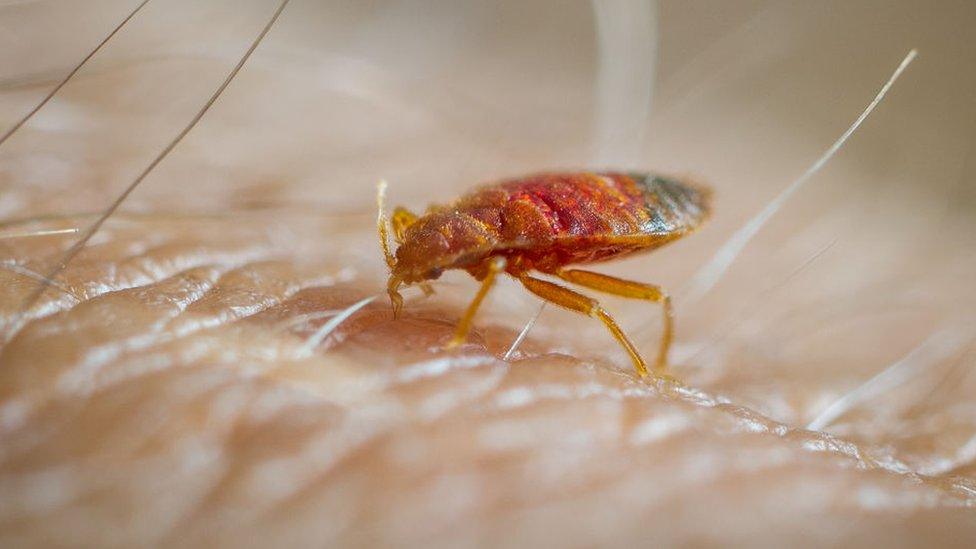
- Published3 October 2023
